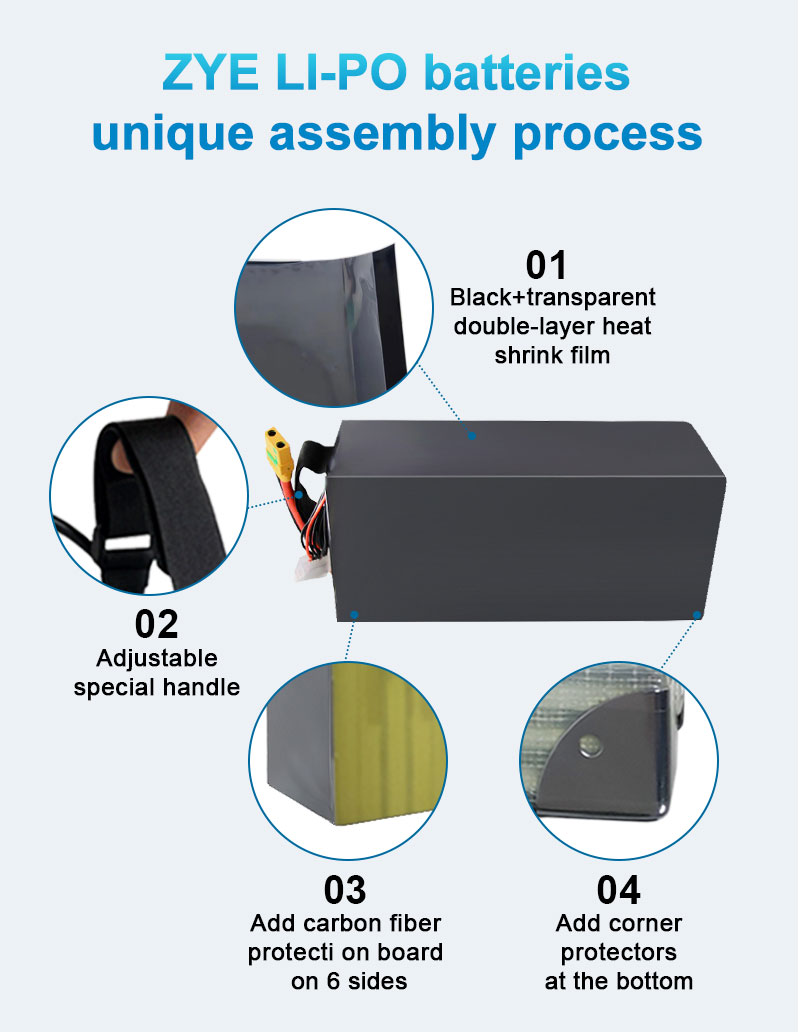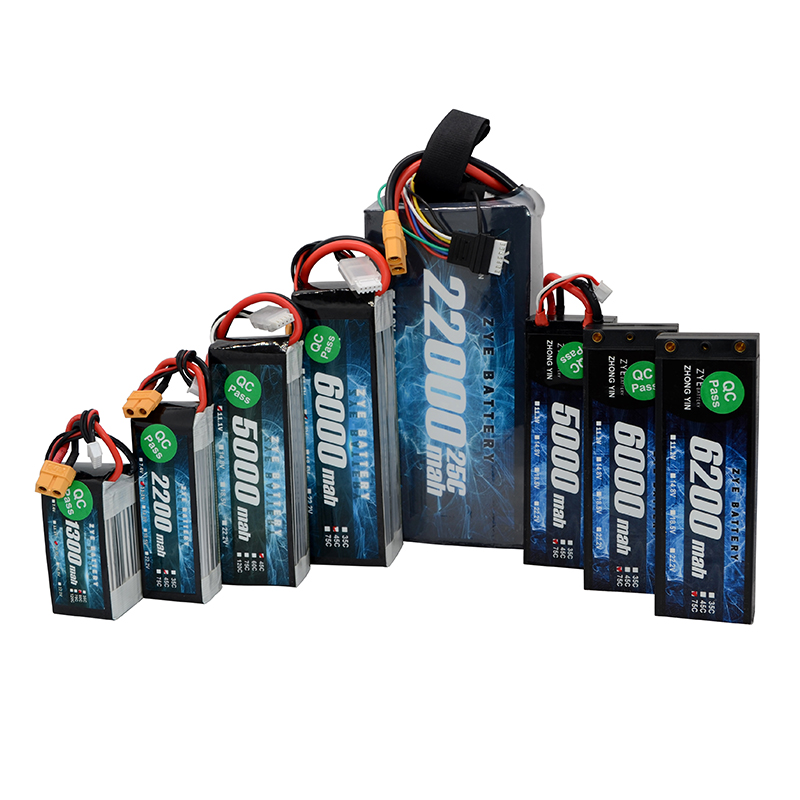What risks are associated with storing LiPo batteries?
2025-07-31
Lithium polymer (LiPo) batteries have become increasingly popular in various applications, from remote-controlled devices to UAVs.
This article delves into the safety aspects of 22000mah-12s-lipo-battery and other LiPo variants when they're storing, providing valuable insights for users and enthusiasts alike.

Extending the Lifespan of Lipo Battery
LiPo batteries can be expensive, so it's essential to take steps to maximize their lifespan. Here are some tips to help you get the most out of your lipo battery:
1. Avoid deep discharges: Try not to discharge your battery below 20% capacity. Deep discharges can significantly reduce the battery's lifespan.
2. Store at the right voltage: When not in use for extended periods, store your LiPo battery at around 3.8V per cell (22.8V for a 6S battery). Most modern chargers have a storage charge function.
3. Keep it cool: High temperatures can degrade LiPo batteries. Store and use your battery in a cool, dry place whenever possible.
4. Balance regularly: Use the balance charging function on your charger to ensure all cells remain at an equal voltage.
5. Inspect for damage: Regularly check your battery for any signs of swelling, punctures, or other physical damage. Discontinue use immediately if you notice any issues.
6. Use a LiPo safe bag: Always store and charge your battery in a fireproof LiPo safe bag to minimize risks in case of a malfunction.
By following these guidelines, you can significantly extend the life of your LiPo battery and ensure it performs optimally for a longer period.

The Risks Associated with Storing LiPo Batteries
1.Overheating
Even when not actively in use, these batteries can still generate heat if they are exposed to high temperatures or direct sunlight. This heat buildup can lead to thermal runaway, a dangerous condition where the battery’s internal temperature rises uncontrollably.
Thermal runaway can cause the battery to catch fire or even explode, posing significant risks to both people and property.
2.Physical damage
LiPo batteries are relatively soft and can be punctured, crushed, or deformed if they are not stored properly. A damaged battery casing can expose the internal components, which can lead to short circuits or chemical leaks. These leaks are hazardous and can cause harm to the user or the environment.
3.Self-discharge
LiPo batteries naturally lose charge over time, even if they are not in use. If a battery is allowed to discharge below its minimum safe voltage, it can suffer permanent damage, leading to a significant reduction in both its capacity and overall lifespan.
Properly storing LiPo batteries at a safe charge level is essential to preserve their performance and longevity.

By understanding these risks and following proper storage guidelines, users can help ensure both the safety and the long-term functionality of their LiPo batteries.
If you have any questions about lipo-battery care or are looking for high quality lipo battery solutions, please feel free to contact us at coco@zyepower.com. We're here to help you power your projects safely and efficiently.
























































